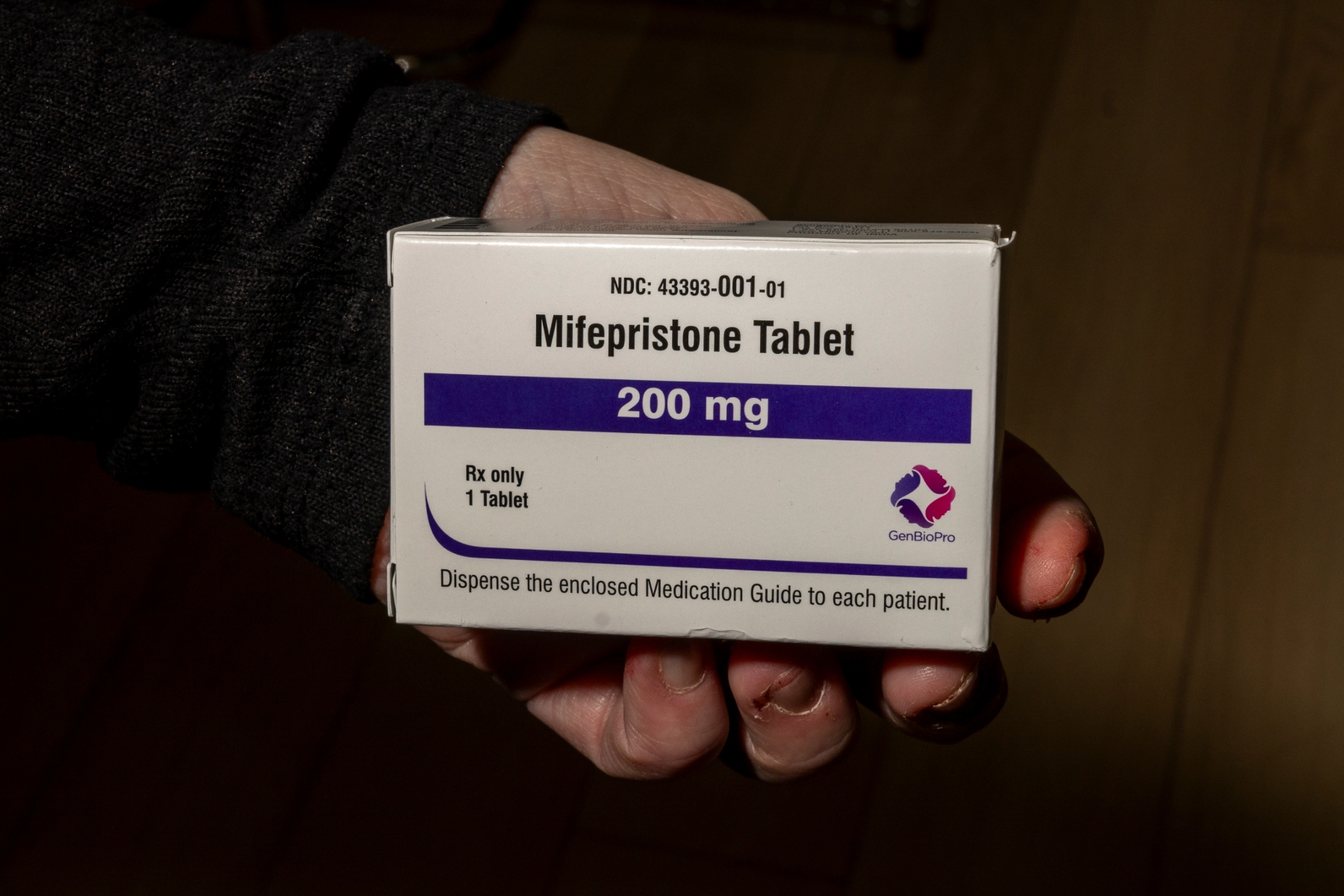A new lawsuit filed in Texas could force federal courts to weigh in on the legality of telehealth abortions, which people have increasingly used to terminate their pregnancies since Roe v. Wade was overturned.
The case, a civil complaint filed in the federal court for the Southern District of Texas, alleges that a California physician violated state and federal law by mailing abortion pills to a Texas woman seeking to terminate her pregnancy. As the first individual complaint to be filed in federal court, this case has the potential to end up in front of the U.S. Supreme Court — the opportunity that abortion opponents have been waiting for.
“This is a big deal no matter what happens with this lawsuit,” said Mary Ziegler, an abortion law historian at the University of California, Davis. “We’re back to the same ‘can one state force another state to bend to its will’ question we’ve been at from the beginning.”
The plaintiff, Jerry Rodriguez, is arguing that Dr. Remy Coeytaux sent medication to Rodriguez’s girlfriend for two separate abortions and is responsible in multiple instances for the wrongful death of an “unborn child.” The suit claims that the doctor’s actions are a violation of both Texas state law and an 1873 federal statute called the Comstock Act, which prohibits the mailing of material “intended for producing abortion, or for any indecent or immoral use.”
The federal law has not been enforced in decades, but abortion opponents — including Rodriguez’s lawyer, former Texas Solicitor General Jonathan Mitchell — have sought to revive and enforce it. Rodriguez is seeking damages of at least $75,000 and a court order to bar Coeytaux from mailing medications. Mitchell did not respond to a request for comment.
Rodriguez argued the suit should be certified as a class action suit on behalf of “all current and future fathers of unborn children in the United States.” The case fits into a larger anti-abortion strategy that relies on finding men willing to sue over abortions done for their partners or ex-partners.
The stakes are significant. About a quarter of all abortions involve receiving abortion medication in the mail, and half of those are for people trying to get around bans in their home states, like Rodriguez’s Texas. The telehealth method — which includes virtual care from a health provider — is safe, effective and often substantially cheaper than traveling to another state for an abortion.
Medical providers involved in telemedicine abortions practice in states where abortion is legal, relying on an extra level of protection from their own states: shield laws that say their state will not cooperate with efforts to prosecute them over telehealth abortions legal in the place where the health provider practices.
There have been various efforts to block telehealth abortions and challenges to these shield laws.
The Supreme Court dismissed a case last year that sought to reverse the Food and Drug Administration’s decision to allow mifepristone, one of the two drugs used in medication abortions, to be prescribed and taken through telehealth. Anti-abortion groups are also pressing the Trump administration to leverage the FDA or Department of Justice to restrict when and how mifepristone can be prescribed. So far, the federal government has taken no action, though Health and Human Services Secretary Robert F. Kennedy, Jr. has promised a federal review of the drug .
In Texas, anti-abortion lawmakers sought to pass legislation that would empower private citizens to sue anyone who provides telehealth abortions to Texans; the bill failed to pass, though it is expected to be considered in the state’s ongoing special session.
Anti-abortion state lawmakers have now turned to individual lawsuits to attempt to shut down the virtual care model. Texas Attorney General Ken Paxton filed a civil suit against New York-based physician Dr. Maggie Carpenter. A grand jury in Louisiana also indicted Carpenter, and in May, the state attorney general, Liz Murrill, said her office has opened another investigation into the physician.
Those cases, the first to test the strength of states’ shield laws, have so far been unsuccessful in blocking abortion. In February, a Texas judge found Carpenter guilty of breaking the state’s abortion ban and ruled that she must pay $113,000. But since then, the case has been at a standstill. In March, a county clerk in Texas refused to file the Texas-based judgment, citing New York’s shield law. Paxton’s office made the same attempt earlier this month and received another refusal.
Louisiana Gov. Jeff Landry has sought to have Carpenter extradited to his state to stand criminal trial. But New York Gov. Kathy Hochul, a Democrat and supporter of abortion rights, has refused to comply, saying that she ordered state law enforcement not to comply with those out-of-state efforts.
Louisiana and Texas attorneys general have not asked a federal court to weigh in on the matter, the next legal step to settling this type of interstate dispute. The new Texas case offers a new avenue for court-imposed restrictions on telehealth abortion.
“They’re separate tracks, but I think they’re both strategies to undermine shield statutes for the states like California that define legally protected reproductive health care,” said Rachel Rebouché, dean of the law school at Temple University, who has helped advise states on crafting shield laws. “This is both to test a claim under a wrongful death statute, but it also tests what the federal court does, given that California has a shield statute.”
The federal case offers another chance for abortion opponents to force courts to consider the Comstock Act. Depending on how the district court rules, this case could then be heard by the U.S. Court of Appeals for the Fifth Circuit, one of the nation’s more conservative appeals courts and one that has frequently ruled in favor of arguments for restricting abortion.
The next court after that would be the U.S. Supreme Court. Two of its members — Justices Clarence Thomas and Samuel Alito — have expressed openness to the idea that the law applies to mailing abortion pills.
“It’s part of an effort to take down shield laws and also to bypass some of the obstacles that were being posed by both the Trump admin vis-à-vis Comstock and Texas and Louisiana not appealing” their cases to federal court, Ziegler said. “The goal was obviously to get this to the Supreme Court.”
Feeling overwhelmed by the news? The 19th is considering new ways to keep you informed. But we need your input. Fill out this quick survey to share your thoughts.







